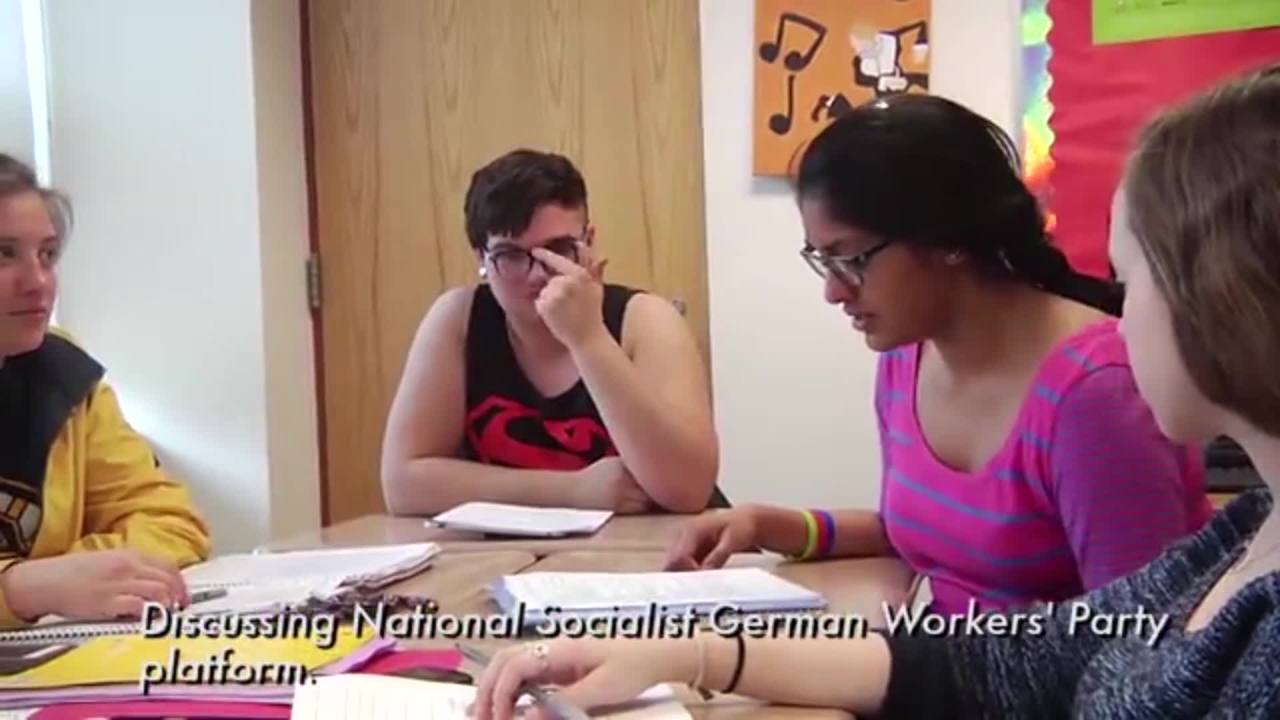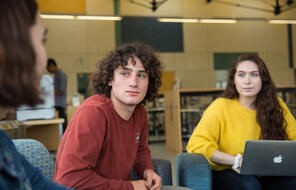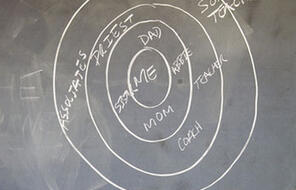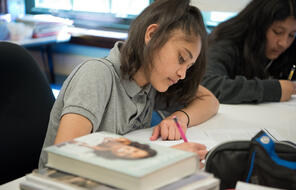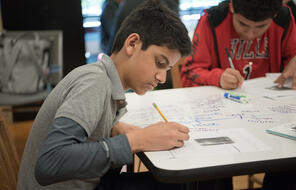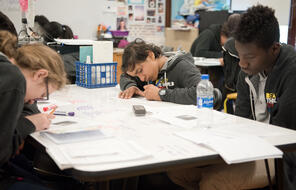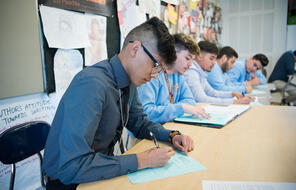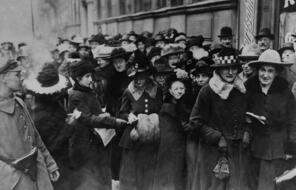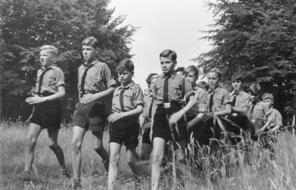This lesson is part of a unit that's looking at the rise of the Nazi Party in Weimar Germany, and the collapse of democracy in that state. What is the situation like in the Weimar Republic for people living in Germany from about 1920 to 1930? Abby, you have your hand up. The Great Depression, Weimar government. The Nazis weren't popular. They were gaining popularity as the years went by. Major inflation, for sure. OK. In terms of skills, I'm looking for kids to read for information-- so gather information from a text, to then summarize that information, and then analyze that information and apply it to a different situation to develop an argument. So they'll take all of these facts. They'll use those in the context of one individual person's perspective and then defend their point of view from that position. In the 1928 elections, the Nazis received only about 2%. So I really hope that I will see them engage with the text, that they'll be deciphering it, writing on it, pulling things out, but also working with their peers. Because a lot of this is difficult-- a lot of difficult language, things that are unfamiliar to them. So part of the goal of this group work is that they can kind of think with each other as opposed to by themselves. They can wrestle with these issues. And most importantly, I want to see them wrestle with this concept of choice. I think they're worried about their family's future, especially when it comes to economics. People, when they lose their jobs, become very insecure. And as a whole, when the whole society loses a lot of jobs, they become unstable and often seek radical ideas to be the solution to their problem. There's three different parties that all have different pros and cons. And yeah, I think people are having a hard time choosing which one to go for. Well, the Communist Party wants to take away a lot of the wealthy aspects of life-- to even it out. So I think people are nervous. Especially the wealthy people are nervous that they're comfortable-- or relatively comfortable-- living will be taken away. They put an emphasis on, obviously, democracy. Because they're the Social Democratic Party. And they want to help the people with public work programs and providing jobs and unemployment compensation and lowering taxes. But I could see how it could be appealing to other people. Like, if a German is poor, and then there are also immigrants coming in and they have to fight for food with them, I could see how that-- especially number seven-- would be extremely appealing. And there's also a prominent theme of "Lebensraum" and having pure German soil, Aryan people with the immigration law. And especially having all newspapers published in German by German citizens, that kind of-- I don't know-- it doesn't allow information to be given to all people. They only care about German citizens and no one else. And they believe that they're the best. And they have a very narrow definition of "German citizen," right? What does "German citizen" mean? German blood, right? They were talking about this from a racial perspective, too, like we discussed when we looked at their kind of racial theory about who is Aryan, who fits into this category? So you're exactly right, Dan. They're narrowing their focus. We only care about German citizens. OK. So here's where we're going to get into the activity. If you turn to the next page, you will see seven German citizens who live in Weimar, Germany, who will be casting a ballot in the Reichstag election of 1932. Read their little bio. And discuss as a group which party you think they would vote for. And on the back of the card, you're going to write the name of the party and then three reasons from the biography that they would be voting for that particular party. Because he says he wants the economy to be more stable. He believes that the union would be more successful if the economy were more stable. And in the Social Democratic platform, it says that they want to rebuild the economy. But at the same time, aren't the Social Democrats in charge right now? True. So does he want something new to have a stable economy? But he says he wants the Treaty of Versailles upheld. No, he wants the Treaty of Versailles gone. Oh, oh, oh. Because his uncle, he lives close. But he would have to travel through Poland to get to him. So they have to have passports and other official documents just to visit relatives who are only a few miles away. OK. We're going to get started. As people talk, you can just either underline or make a couple notes. So our first one is Elisabeth Von Kohler. So, Abby, come on up. So Elisabeth Von Kohler, we said that she would be a Social Democrat because she was somebody who was higher up in society because she was an attorney. And she also opposed the extremist parties. And she wanted to see a republic led in a democratic way in Europe. The journaling is really kind of a reflection piece that we do in here. And they do it all the time. Every day they're writing in their journals. And I look at them occasionally as assessment pieces. Sometimes it's more for me to just really see what they're thinking. But it's a place for them, after they've done all this group work and all of this large group discussion, to kind of digest all of this information, put it down on a piece of paper in their own words and their own perspectives. For some students, especially ones who are a little shy and don't like to talk, it's this great kind of window into their minds, because I get to see really what they're thinking and how they're processing. It's also really great for me if there are a couple of kids that I'm just not sure if they got it. I can flip to that journal and get a quick glance and see whether or not they really are understanding this.
